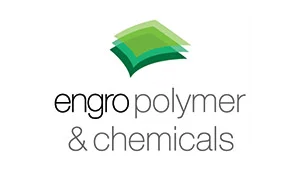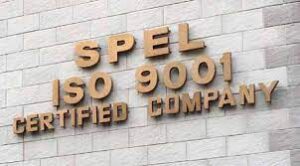









Welcome to the Department of Polymer and Process Engineering where innovation meets excellence! Polymer Engineering stands at the forefront of modern technology, driving advancements in industries ranging from everyday consumer goods to high-tech defence applications. Recognizing the immense potential of this dynamic field, the undergraduate program in polymer engineering was established in 2002 under the Polymer Engineering Division of the Department of Chemical Engineering.
In response to the rapid growth and critical demand for skilled professionals in Pakistan’s booming polymer industry, the division was elevated to an independent degree-awarding department in January 2006. Building on this momentum, the first postgraduate program in Polymer & Process Engineering was launched in 2007, further cementing our role as a hub for academic excellence and industry innovation.
Equipped with state-of-the-art laboratories valued at over Rs. 200 million, our department is powered by a team of highly motivated faculty members, dedicated technical staff, and a vision to shape the future of Polymer and Process Engineering. Currently, our graduates are serving in various industrial sectors such as plastics, automotive, appliances, packaging, pipes, wires and cables, injection molding, polymer resin manufacturer, polymer recyclers, paints and adhesives, refinery and petrochemicals, fertilizers, rubbers and tires. Moreover, our graduates find ample of scholarship opportunities abroad owing to specialized knowledge of polymer engineering. So, join us in advancing technology, driving innovation, and transforming industries through knowledge and expertise.
The BSc. Polymer Engineering is the first-degree program in Polymer engineering in Pakistan that was accredited by Pakistan Engineering Council (PEC) at level-II in 2015 under the Washington Accord for global recognition.
1. Programs being Offered
- BSc. Polymer Engineering
- MSc. Polymer and Process Engineering
- M.Phil. Polymer Science and Technology
- Ph.D Polymer Science and Engineering
2. Program Design
The degree program in Polymer Engineering was designed to build on the current activities in the field and to provide a nucleus for the University’s rapidly expanding industrially orientated research training and consultancy in polymer science and engineering.
The basic motive is to utilize the University’s initiative in areas of multi-disciplinary polymer-related research. In order to ensure that the high-quality education in Polymer Engineering is available to undergraduates, and in keeping with the mission of the University, the following core values have been the main focus in the design of courses.
- Graduates will be able to analyze structure-property relationships in all forms of polymers and composite materials and understand how these properties are affected by manufacturing methods.
- Graduates will have the necessary foundation in mathematics, physical sciences, and engineering to pursue advanced degrees in polymers and related disciplines.
- Graduates will acquire through research projects and general studies the required skills for problem-solving, critical thinking, and communication that will make them successful in their chosen careers.
- Graduates will develop the necessary skills which will help them in their careers.
3. Learning Resource Centre
The Department of Polymer and Process Engineering has established a well-equipped Learning Resource Centre. It is based on the concept of providing integrated resources in one place. The Learning Resource Centre has a large number of textbooks, reference materials, handbooks, data books, research journals, design projects, electronic books, and animations of complex engineering phenomena and lectures of eminent professors from reputed universities like MIT.

4. Internet Access and Network Facilities
Department of Polymer & Process Engineering has fully operative Computer Lab with networking and its own data server. The Management Information System (MIS) in the Department provides database for student records, quiz records, attendance records, class lectures, electronic notice board, course progress files and examination results. The Department has its own website that goes through continuous improvement.
5. Employment & Industrial Linkage
At the Department, we believe that universities always have been the centres of scholarship. Today, they have to extend their function and fully integrate research, education and innovation, and attract other centres of knowledge into cooperation. Research and thus postgraduate studies, have to be more focused on industrial problems. The Department is working relentlessly to establish a meaningful and productive link with prominent polymer related industries. The broad framework of cooperation is as follows:
- Area of interest at the Department
- Process Equipment Design and Simulation
- Process Analysis and Troubleshooting
- Training Workshops, Seminars, and Courses at various levels for industries.
- Development and Complete Characterization regarding:
- Thermoplastics and Thermosets Compounds
- Elastomeric Materials
- Polymeric Composites
- Advanced Multifunctional Polymers
6. Industrial Contribution
- Industrial Training and Internships for students
- Enhancement of Laboratory Facilities
- Scholarships for students
- Research Projects leading to M.Sc. and Ph.D. degrees
- Funded Industrial Research
7. Modes of Interaction
- Direct Liaison on a Specific Project Basis
- Collaboration through HEC-Industry Linkage Programme
8. Collaborating Industries
The Department has signed Memorandums of Understanding (MOUs) with some of the leading industries. In response, we provide industrial research and testing facilities to these industries. Industries also provide practical knowledge to our graduates after hiring them as interns. Some of the major industries entering into an agreement with the Department include the following industrie










The Department is working on future collaboration and many more linkages are expected in the near future.
9. Strong Internship Program
The productive collaboration with industry has resulted in ample internship opportunities for our students. The Department provide 100 % Internship to our 4 th year, 3 rd year and 2 nd year students in the previous years and is expected to do the same in the future.
10. Careers in Polymer & Process Engineering
Polymers have numerous possibilities in structural, electrical, mechanical, and medical applications due to their unique physical properties and ability to be tailored through chemistry, cross-linking, and surface modifications. Polymers are the most rapidly growing sector of the materials industry. As polymer production has grown, so has the number of people who work in this field. Today, it is estimated that:
- 50 % of the chemical engineers and chemists in the world work in the polymer industry
- Polymer engineers need to apply the traditional skills of chemical engineers, such as plant design, process design, thermodynamics, and transport phenomena, to various problems involving the production and use of polymers.
- Many of the engineers currently working in industry try to solve the problems; have background in either chemical engineering or polymers engineering.
11. Our graduates find jobs in:
- Polymer producing companies
- Petroleum refineries
- Fertilizer and cement industries
- Polymer processing and fabrication
- Scale-up of new synthetic chemistry from laboratory development to pilot plant and large-scale production
- Research and product development in polymer synthesis (current hot topics include biodegradable polymers and compatibilizers for recycling polymers).
- Research and process development in polymer processing
The reception by the industry to our graduates in the past years has even surprised us. Demand is ever growing. Some of the employers of students of graduate batch are Packages (Pvt.) Limited, Engro Asahi Polymer Karachi, Descon Engineering (Pvt.) Limited, Attock Oil Refinery, Pakistan Petroleum, National Refinery, FFC, Fatima Fertilizers, Engro Fertilizers, Lotte PTA, Popular pipes, Panthar Tires and Service Industries
12. Research in Polymer & Process Engineering
The Department of Polymer & Process Engineering is at the forefront of innovation, driving cutting-edge research in polymer synthesis, characterization, and advanced processing techniques. Our focus spans sustainable polymer development, nanocomposite materials, biodegradable plastics, and process optimization for industrial applications. By integrating modern computational tools with experimental research, we aim to address global challenges in energy, environment, and healthcare. Our collaborative efforts with industry and academia ensure that our research remains impactful, advancing both scientific knowledge and technological progress in the field of polymer engineering.
